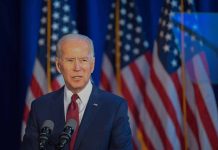
(BrightPress.org) – Doctor Patrick T. Brown is a climate researcher who just published his paper, “Climate warming increases extreme daily wildfire growth risk in California” in Nature, one of the most prestigious scientific journals that exists. In a new essay for the Free Press, Brown admits he selectively edited the paper such that it would fit into their desired narrative that climate change is the sole driver of wildfires in order to get it published.
He further argues that he had to edit the paper, leaving out alternative solutions like forest management, and infrastructure development, as well as the fact that more than 80% of wildfires are started by people, accidentally or otherwise. Brown said that addressing these facts in his research would have made it far more likely the journal rejected his paper, or that reviewers they selected would give him an unfavorable appraisal behind the shield of anonymity.
Brown cites the competitive nature of the scientific field with the addition of tens of thousands of new researchers in the sciences over the decades. As it becomes more difficult to stand out, folks are more willing to adjust their research or results to increase their odds of getting published. Getting published is a required prerequisite for getting grant funding, the more one is published and the more prestigious the journal the more likely your grant applications will be approved.
Due to the volume of research they can sift through, these journals act as scientific gatekeepers, relegating some research and results to serious and deserving attention while unpopular or critical data can be ignored entirely. This was recently made an issue by Dr. John Lott, president of the Crime Prevention Research Center and a former employee of the Department of Justice. Lott pointed out that the FBI and CDC were ignoring crucial data about civilian gun owners stopping other criminals during mass shootings.
Brown ended his essay by explaining that these narrative biases are preventing accurate data from reaching the policymakers and thus preventing the best policy from emerging. In fact, these institutional gatekeepers continue to argue that accurate data is a myth in the op-ed pages of the New York Times.
Copyright 2023, BrightPress.org
















